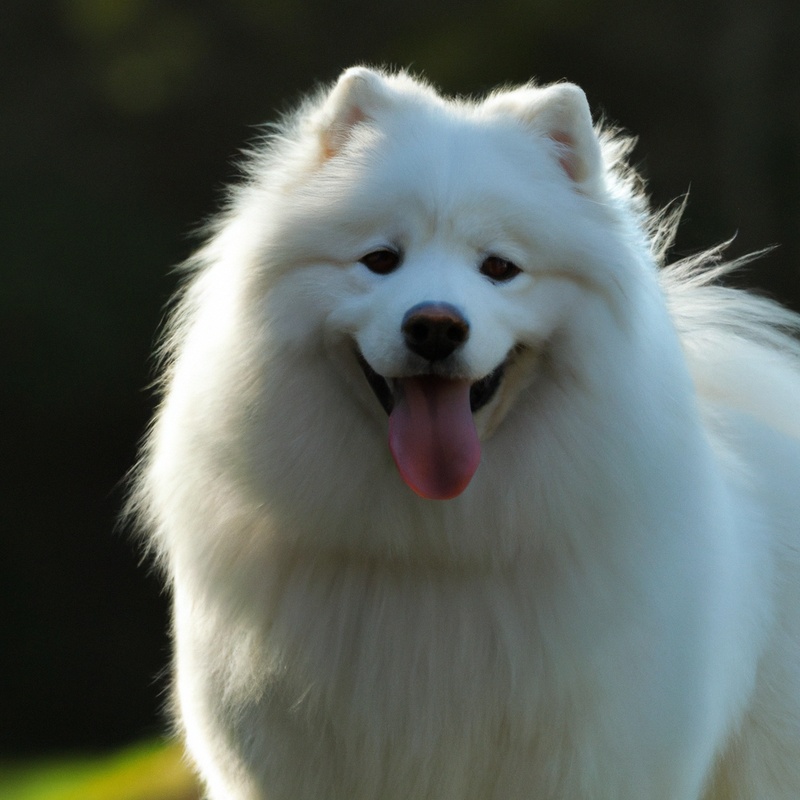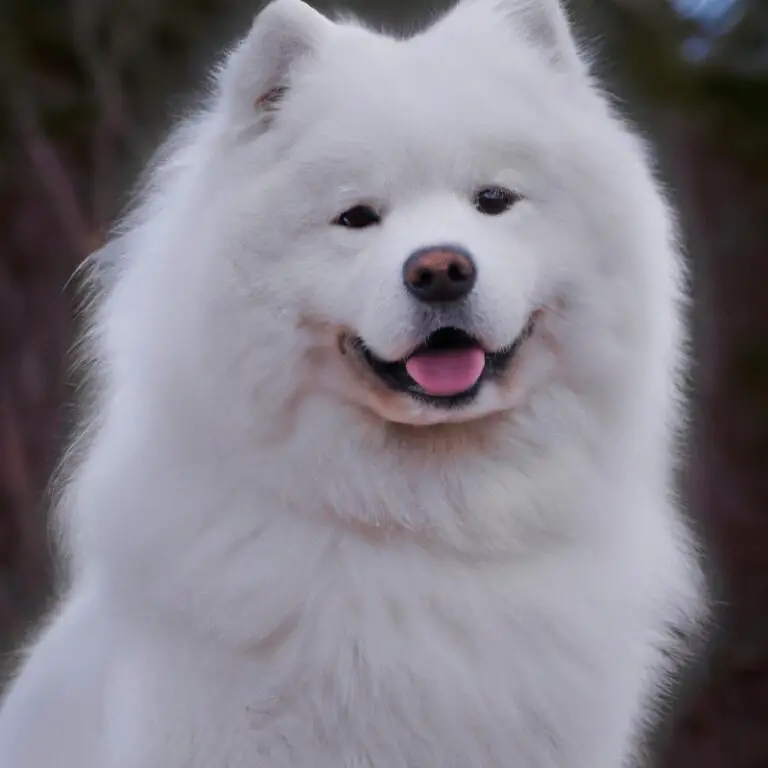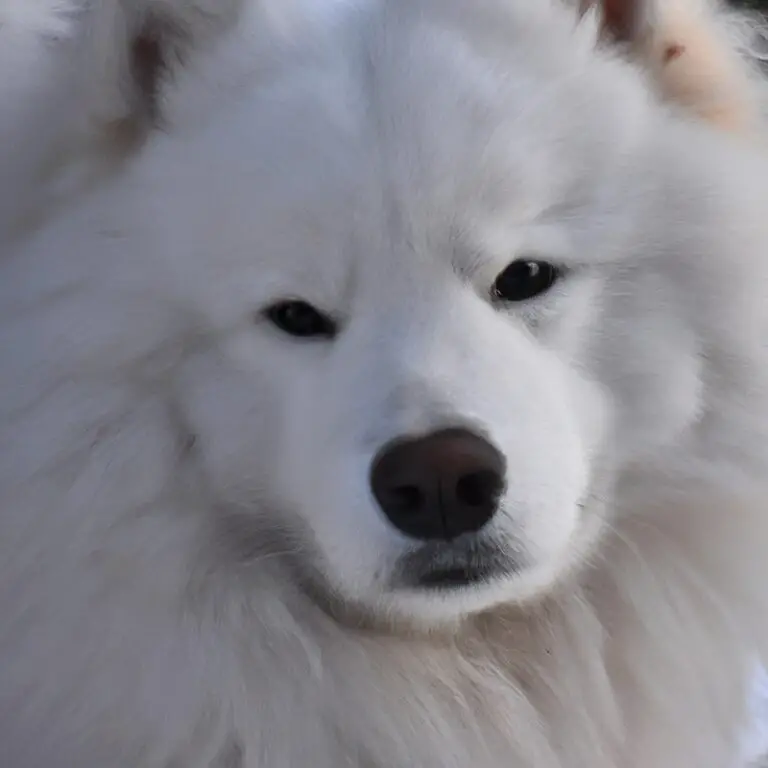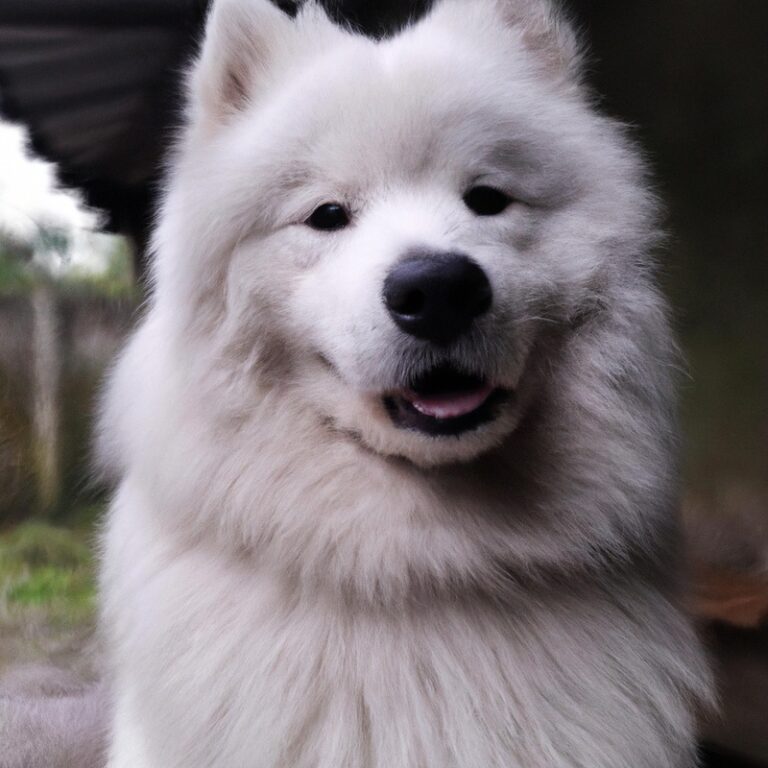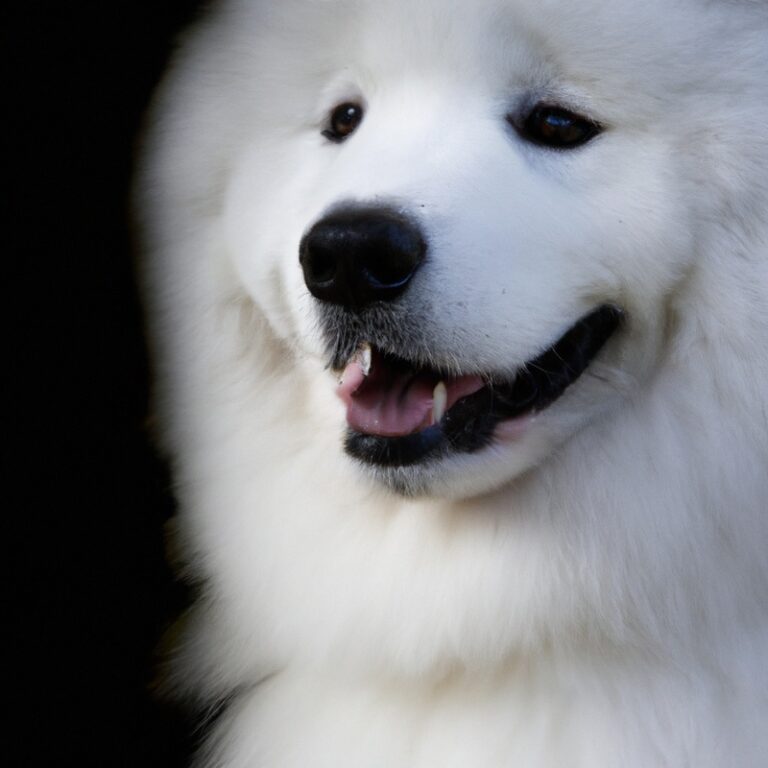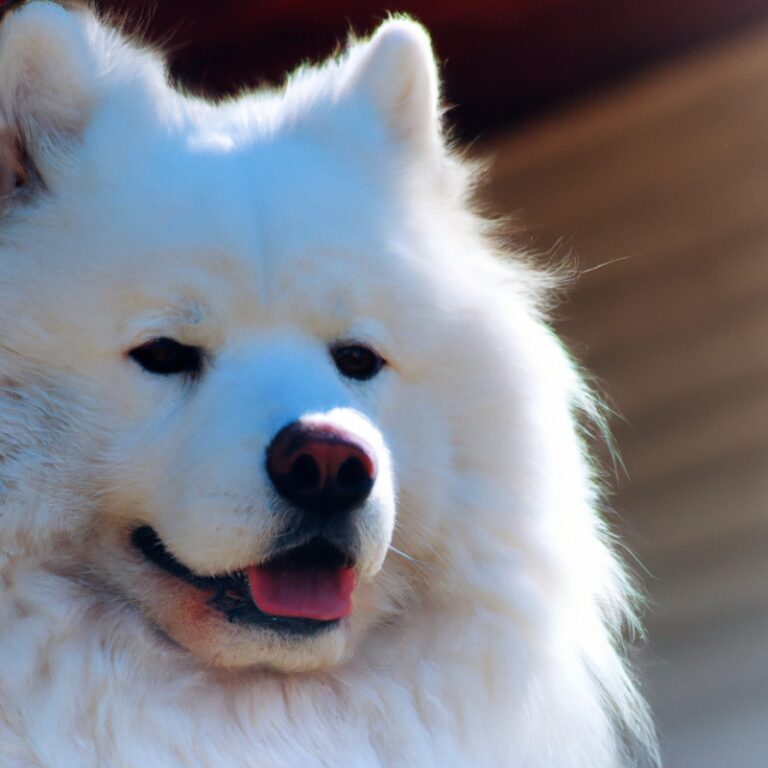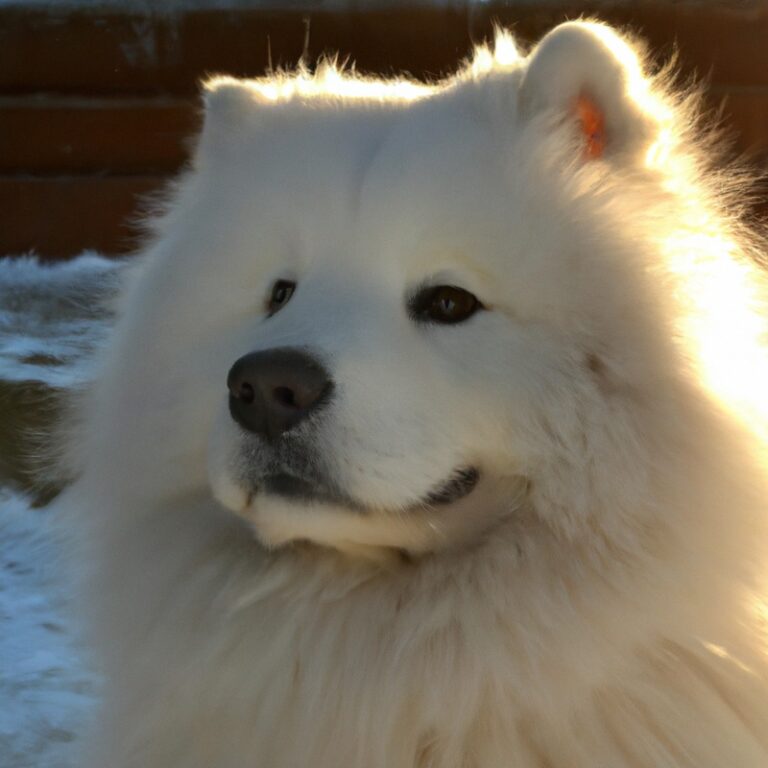Can Samoyeds Be Trained For Competitive Obedience Trials?
Key Takeaways:
- Samoyeds can be trained for competitive obedience trials with proper training and patience.
- The intelligence and temperament of Samoyeds make them suitable for obedience training.
- Consistent and positive reinforcement methods are effective in training Samoyeds for obedience trials.
- Early socialization and exposure to different environments are important for Samoyeds to excel in competitive obedience trials.
Are you a proud Samoyed owner wondering if your fluffy companion has what it takes to compete in obedience trials?
Well, wonder no more! As an expert in dog training, I’m here to tell you that Samoyeds can absolutely be trained for competitive obedience trials.
In fact, their intelligence, willingness to please, and natural agility make them excellent candidates for such competitions.
But before you dive into training, it’s important to understand the Samoyed breed, their characteristics, and temperament.
Let’s explore all that and more in this article.
So, grab a cup of coffee and let’s get started!
| Aspect | Yes | No |
|---|---|---|
| Intelligence | High intelligence allows for training | May be independent and stubborn |
| Trainability | Highly trainable with positive reinforcement | May require extra time and patience |
| Temperament | Friendly and eager to please | May have a strong prey drive |
| Physical Abilities | Fit and agile for challenging exercises | May be prone to certain health issues |
| Competitive Performance | Can excel in obedience trials | May struggle with certain exercises |
Understanding the Samoyed breed
History of the Samoyed breed
The Samoyed is an ancient breed that originated in Siberia.
They were bred by the Samoyedic people for herding reindeer, pulling sleds, and keeping them warm during cold winters.
These beautiful dogs were highly valued, not only for their working abilities but also for their gentle temperament and companionship.
They played a significant role in the lives of the Samoyedic people, serving as trusted helpers and family pets.
Over time, the breed made its way to other parts of the world, where it became popular for its striking appearance and friendly nature.
Today, Samoyeds are cherished as beloved family pets.
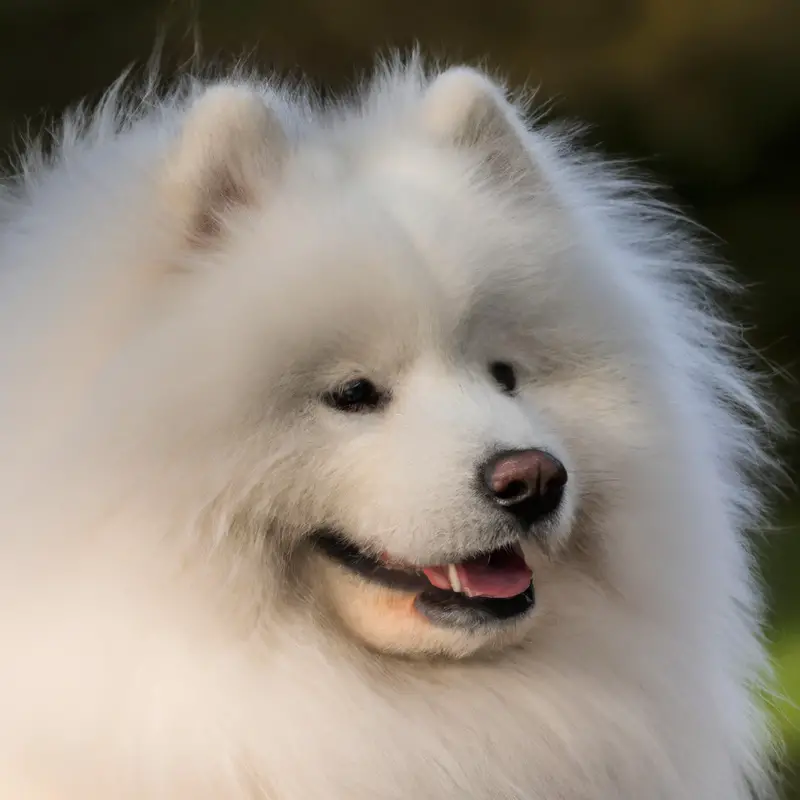
Characteristics and temperament of Samoyeds
Samoyeds are known for their friendly and gentle nature.
They have an outgoing personality and love to be around people.
They are highly sociable dogs and get along well with children and other pets.
Samoyeds are intelligent and eager to please, making them trainable in obedience.
However, they can also be independent and stubborn at times.
It’s important to start training them at an early age and be consistent with positive reinforcement methods.
Regular exercise and mental stimulation are also crucial for keeping Samoyeds happy and well-behaved.
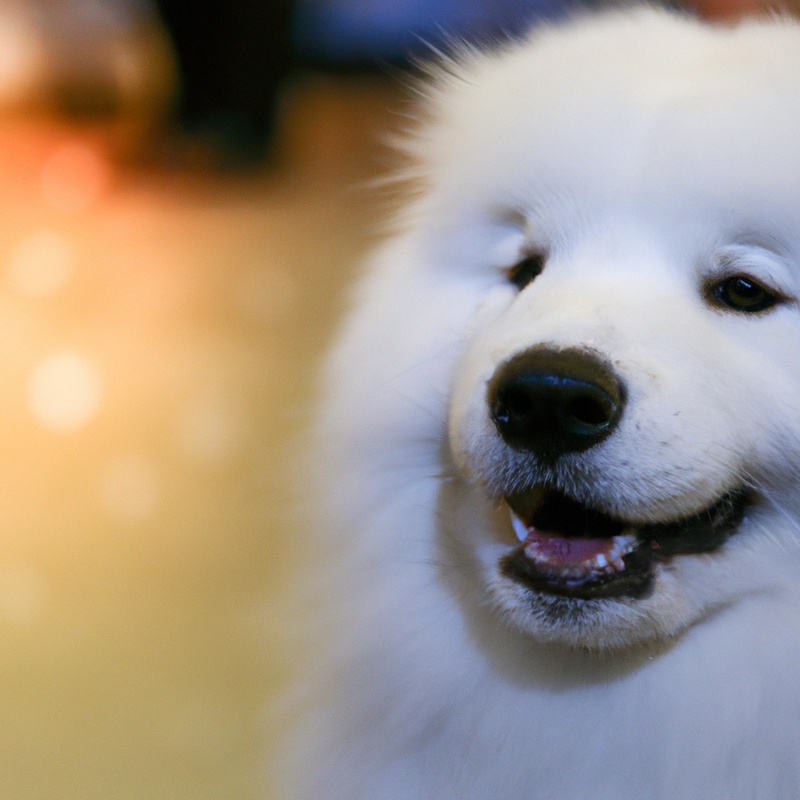
Training Samoyeds for obedience trials
Importance of obedience training for Samoyeds
Obedience training is crucial for Samoyeds to ensure they are well-behaved and responsive. It helps establish clear boundaries, strengthens the bond between you and your dog, and promotes their mental and physical well-being.
Through training, you can teach your Samoyed basic commands, manners, and socialization skills, making them a joy to have in any situation.
Additionally, obedience training can prevent behavior problems and promote a harmonious household. With consistent training and positive reinforcement, Samoyeds can excel in obedience trials and showcase their intelligence and willingness to work.
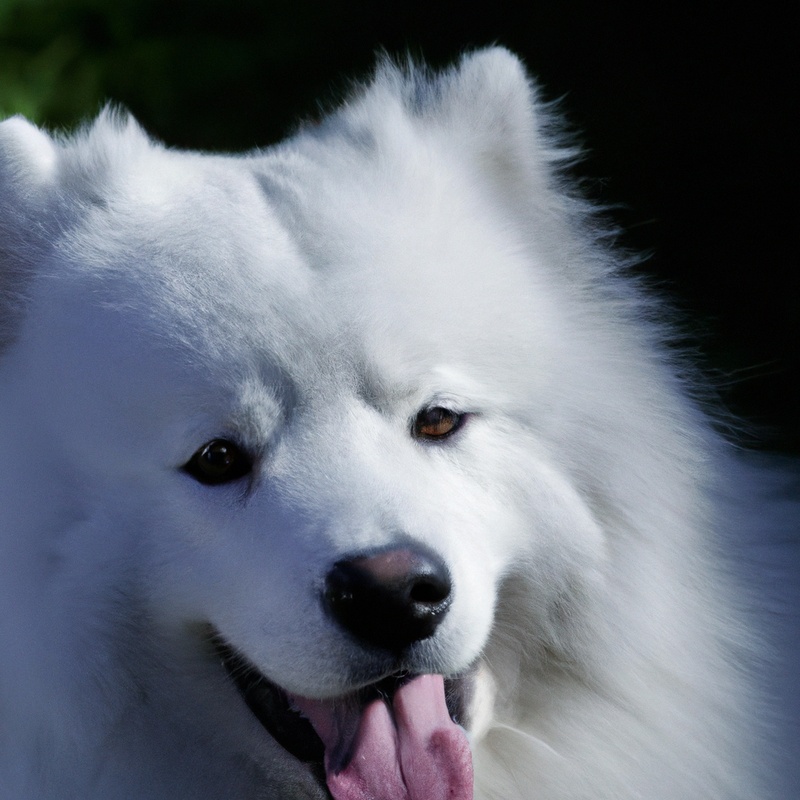
Basic obedience commands for Samoyeds
Teaching your Samoyed basic obedience commands is essential for their safety and well-being. Here are some important commands to focus on:
- Sit: Teach your Samoyed to sit on command. This command is useful in many situations and can help you gain control over your dog’s behavior.
- Stay: Training your Samoyed to stay in one place until you give them the signal to move is crucial for their safety. Start with short durations and gradually increase the time.
- Come: Teaching your dog to come when called can prevent them from getting into dangerous situations or running off. Practice this command in a safe and controlled environment before testing it in more distracting settings.
- Heel: Train your Samoyed to walk calmly by your side on a loose leash. This command is useful for walks and outings, ensuring your dog doesn’t pull or become overly excited.
- Down: Teaching your dog to lie down on command is valuable for various situations, such as when you need them to settle or when you want to groom them.
Remember to use positive reinforcement techniques, such as treats and praise, to reward your Samoyed for following the commands correctly. Consistency and patience are key when training your Samoyed, so keep practicing these commands regularly.
Crate training and housebreaking for Samoyeds
Crate training and housebreaking Samoyeds is definitely possible.
For crate training, introduce the crate gradually and create positive associations with treats and praise.
Make the crate cozy and comfortable, and never use it for punishment.
Samoyeds are prone to separation anxiety, so crate training can help them feel secure when left alone.
Housebreaking Samoyeds requires patience and consistency.
Take them outside frequently, especially after waking up, eating, or playing.
Use positive reinforcement, like treats and praise, when they eliminate outside.
Be prepared for accidents and clean them up without scolding.
With consistency and positive reinforcement, your Samoyed can become fully housebroken.
Preparing for competitive obedience trials with Samoyeds
Evaluating your Samoyed’s readiness for competition
To evaluate your Samoyed’s readiness for competition, focus on their obedience skills, temperament, and physical fitness.
Start by assessing their basic obedience commands such as sit, stay, and heel.
Ensure that they can perform these commands consistently and reliably.
Next, evaluate their temperament to determine if they can handle the stress and distractions of a competition environment.
Lastly, assess their physical fitness to ensure they have the stamina and endurance required for long obedience routines.
Regular training sessions and exposure to different environments will help gauge their readiness.
Finding a qualified obedience trainer for Samoyeds
Finding a qualified obedience trainer for your Samoyed is essential. Look for trainers who specialize in working with this breed or have experience with spitz-type dogs.
Ask for recommendations from local dog clubs or your veterinarian.
When evaluating trainers, consider their qualifications, training methods, and success rate. Look for positive reinforcement techniques and a trainer who emphasizes building a strong bond with your Samoyed.
Trust your instincts and make sure the trainer’s style aligns with your goals and values.
Training schedule and consistency for competition preparation
To prepare for competitive obedience trials with Samoyeds, it’s important to establish a consistent training schedule.
This schedule should include regular sessions to work on obedience commands, such as sit, stay, heel, and recall.
Keep the training sessions short but frequent, focusing on positive reinforcement and rewarding desired behaviors.
Consistency is key, so make sure to practice consistently throughout the week.
Additionally, consider incorporating distractions into your training sessions to simulate trial environments.
By staying consistent and dedicated to your training schedule, you can improve your Samoyed’s performance in competitive obedience trials.
Tips for successful obedience training with Samoyeds
Using positive reinforcement techniques
Using positive reinforcement techniques is key when training your Samoyed. These techniques involve rewarding desired behaviors with praise, treats, or playtime.
By focusing on positive reinforcement, you’ll be reinforcing good behavior and creating a positive learning experience for your dog.
Remember to be consistent, patient, and to keep training sessions short and fun. Positive reinforcement will help motivate and encourage your Samoyed to excel in obedience training.
Building a strong bond and trust with your Samoyed
Building a strong bond and trust with your Samoyed is key to successful obedience training.
Spend quality time together, engaging in activities like walks and playtime.
Use positive reinforcement to reward good behavior and give lots of praise and affection.
Consistency is crucial, so establish clear rules and boundaries.
Communication is also important, so learn to understand your Samoyed’s body language and cues.
Patience and understanding will help build a strong and trusting relationship with your furry companion.
Consistency and patience in training
Consistency and patience are key when training your Samoyed.
Training takes time, so don’t rush the process.
Stick to a regular training schedule and be consistent with your commands.
Use positive reinforcement and rewards to motivate your dog.
Celebrate small wins along the way.
Remember, every dog is different, so be patient and adjust your training methods if needed.
With consistency and patience, you can achieve successful obedience training with your Samoyed.
Common challenges in training Samoyeds for competitive obedience trials
Samoyeds’ independent nature and potential stubbornness
Samoyeds are known for their independent nature and potential stubbornness. They are intelligent and strong-willed dogs, which can make training a bit challenging.
They may not always follow commands immediately and may require extra patience and consistency.
Their independence also means that they may sometimes prioritize their own agenda over obeying commands. Building a strong bond, using positive reinforcement techniques, and providing mental stimulation can help overcome these challenges and successfully train a Samoyed for obedience trials.
Dealing with distractions during training sessions
During training sessions, distractions can be challenging.
Here are a few tips to help you deal with them:
- Start in a quiet environment: Begin your training sessions in a calm and controlled space where there are minimal distractions. This will help your Samoyed focus better.
- Gradually increase distractions: Once your Samoyed has mastered the commands in a distraction-free setting, introduce one distraction at a time. Start with something mild, such as a toy or a low-level noise, and gradually build up to more challenging distractions.
- Use positive reinforcement: Reward your Samoyed for ignoring distractions and staying focused on you. This will reinforce good behavior and motivate them to stay engaged during training sessions.
- Teach a “leave it” command: Teaching your Samoyed a strong “leave it” command can be helpful in redirecting their attention away from distractions. Practice this command in various situations to ensure its effectiveness.
- Be patient and consistent: Remember that training takes time and patience. Stay consistent with your training methods and avoid getting frustrated. Celebrate each small improvement your Samoyed makes.
By implementing these strategies and staying dedicated to your training, you can help your Samoyed become better at ignoring distractions and focusing on commands.
Keep practicing and enjoy the journey with your furry companion!
Tailoring training methods to suit your Samoyed’s personality
When it comes to training your Samoyed for competitive obedience trials, it’s important to tailor your methods to suit their unique personality.
Here are a few tips to keep in mind:
- Understand their motivation: Some Samoyeds are food-driven, while others respond better to praise or play. Figure out what motivates your dog and use that as a reward during training.
- Be patient and consistent: Samoyeds are intelligent but can be stubborn at times. Stay calm, repeat commands, and reinforce positive behavior consistently to avoid confusion.
- Use positive reinforcement: Focus on rewarding desired behaviors rather than punishing mistakes. Positive reinforcement helps build a strong bond with your Samoyed and makes training more enjoyable for both of you.
- Keep sessions short and engaging: Samoyeds have a short attention span, so aim for short, frequent training sessions that are fun and engaging. Mix up the activities to keep them interested and motivated.
- Adapt to their energy level: Some Samoyeds are high-energy, while others are more laid-back. Adjust the intensity of the training and provide enough physical and mental stimulation to keep your Samoyed balanced and focused.
By tailoring your training methods to your Samoyed’s personality, you can create a positive and effective training experience that brings out the best in your furry friend.
Good luck with your obedience training!
Frequently Asked Questions
Can Samoyeds be trained to off-leash obedience?
Yes, Samoyeds can be trained to have off-leash obedience.
It requires consistent training, positive reinforcement, and patience.
Start with basic commands like sit, stay, and come, gradually progressing to more complex behaviors.
Use high-value rewards and practice in controlled environments before attempting off-leash training in open spaces.
Always prioritize your dog’s safety and consider their individual temperament and behavior.
Regular practice and building a strong bond with your Samoyed will help them succeed in off-leash obedience.
How long does it take to train a Samoyed for obedience trials?
Training a Samoyed for obedience trials can take several months to a year, depending on various factors such as the dog’s age, temperament, and previous training experience.
Consistency, patience, and positive reinforcement are key to success.
Start with basic obedience commands and gradually progress to complex tasks required for trials.
Regular training sessions, lasting around 15-20 minutes, focusing on one skill at a time, are effective.
Seek guidance from experienced trainers to ensure proper training techniques and progression.
Are Samoyeds suitable for first-time dog owners?
Yes, Samoyeds can be suitable for first-time dog owners.
They are known for their friendly and gentle nature, which makes them great family pets.
However, keep in mind that Samoyeds are an active breed and require regular exercise and mental stimulation.
They also have a thick double coat that requires regular grooming.
Proper training and socialization from an early age are important to ensure a well-behaved and happy Samoyed.
So, with the right dedication and commitment, first-time dog owners can have a wonderful experience with a Samoyed.
Final Verdict
Samoyeds can absolutely be trained for competitive obedience trials.
Their intelligent and adaptable nature makes them eager to learn and please their owners.
By using positive reinforcement techniques, building a strong bond of trust, and being consistent and patient in training, Samoyeds can excel in obedience trials.
While challenges may arise due to their independent nature and potential stubbornness, with the right training methods and dedication, Samoyeds can overcome these obstacles and become successful competitors.
So, if you’re considering training your Samoyed for obedience trials, know that with the right approach, they can achieve greatness.

